I haven’t taken the time recently to provide reviews on the books I’ve been reading. So here’s a quick update.
During the past year I had been in the national security classes so I didn’t have much time for leisure reading. I did get some done during the Christmas break between semesters and once my last class ended, and after a recuperative period, I started in on some fiction. The classes pretty much burned me out on non-fiction for a little while.
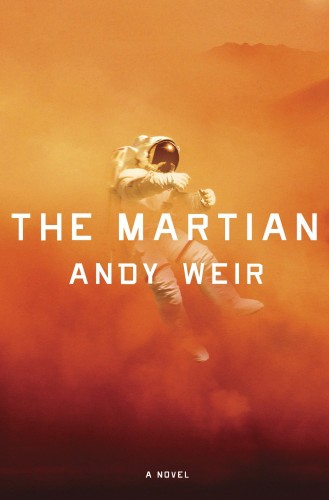 The Martian – Andy Weir
The Martian – Andy Weir
The Martian is one of the most enjoyable books I have ever read. It’s smart, it’s witty, and it’s just fun. Weir went through a lot of effort to get the science right which, for me, really makes the experience stand out. I’m certainly no expert, but I do know a little chemistry, physics, biology, orbital mechanics, etc. So when I’m reading a book where those topics are important to the story line I really appreciate them being correct.
I really enjoyed that the story is driven by the intelligence of the characters and not their ability to shoot things or punch things. I am extremely excited for the movie coming out in October. The previews suggest they captured the spirit of the novel. Next month Weir will be visiting the Lab so I’ll have a chance to get a signed copy of the book.
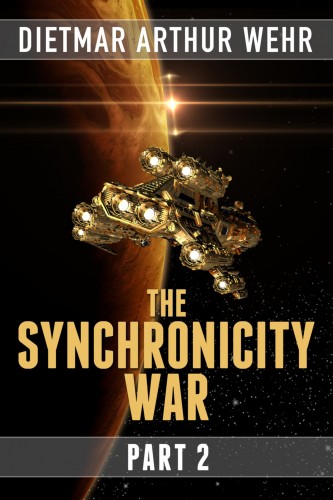 The Synchronicity War – Dietmar Wehr
The Synchronicity War – Dietmar Wehr
The Synchronicity War is a four-part series set during the time period shortly after humanity’s first foray into interstellar space travel and colonization. I enjoyed it. It was light, fast-paced reading. The story involves some time-travel (well done, in my opinion), alien encounters, space combat, and the development of sentient artificial intelligence. I thought the story was cohesive though bordering being over the top at times. If you can look past the occasional blatant deus ex machina it’s a fun read if you’re into sci-fi, action-adventure stuff.
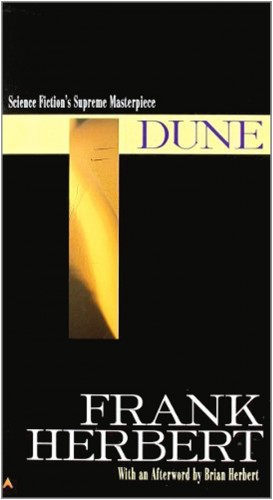 Dune – Frank Herbert
Dune – Frank Herbert
Dune is widely considered to be one of science-fiction’s foundational works. At just shy of 900 pages it’s a commitment to read. Honestly, it’s a slow starter. I think it’s 150 pages before the story line starts to pick up. There’s a lot of foundation laid and I felt like it could have been cut down without much loss. However, once the story picks up it keeps moving rather steadily. It’s well written and the story is well put together with good interlocking details. I did enjoy it overall. One oddity for me though was that it felt more like fantasy than science fiction. Sure there are space ships and advanced technology, but the themes and surrounding narrative felt a lot like Robert Jordan’s Wheel of Time.
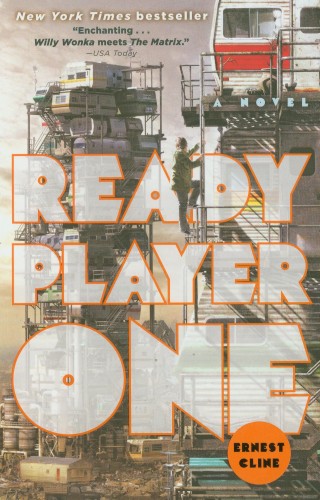 Ready Player One – Ernest Cline
Ready Player One – Ernest Cline
Ready Player One is another quick, fun, read. No, it’s not serious writing about serious subjects. It’s not trying to be Dune. It’s just trying to be entertaining. And it is. The story is cyberpunk obsessed with 1980’s nerd/geek computer/game culture. I’m not exactly a 80’s fanatic or big into MMORPGs (Massively Multiplayer, Online, Role-Playing Games), but I know enough about them to enjoy the book. If you know nothing about those topics the story may be rather unimpressive to you. I think Ready Player One‘s following and popularity is fueled by a very successful appeal to nostalgic charm and that’s fine. I thoroughly enjoyed it.
Hugh Howey Short Stories
 Peace in Amber
Peace in Amber
This story is a bit of an oddity. My understanding is that Howey was asked to write some kind of a mixin with Kurt Vonnegut’s writing and this is what he came up with. If you’re unfamiliar with Vonnegut’s writing half the story might seem really bizarre, but I don’t think it matters much. The interesting aspect of this story is Howey tells his experience of being in New York City on September 11, 2001. He was working on someone’s yacht at the time and was in the harbor. He spent hours using that yacht to ferry people out of Manhattan.
 The Box
The Box
The Box was alright. Not one of Howey’s stronger works. But somewhat interesting still. Definitely still carrying his strong theme of the right to self-determination.
 Glitch
Glitch
Glitch was a bit predictable, but not every story has to be full of twists and turns. Well written and enjoyable and, again, heavy on the self-determination theme.
Second Suicide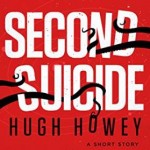
This one was unique. I really enjoyed it. There’s not much I can say that wouldn’t simply spoil the story. Definitely worth a read.
 The Plagiarist
The Plagiarist
The Plagiarist highlights Howey’s ability to take something that looks predictable and turn it on its head. I think the way he does this in many of his stories causes things like Glitch and The Box to feel like lesser works as I think they’re missing this element. Also definitely worth a read.
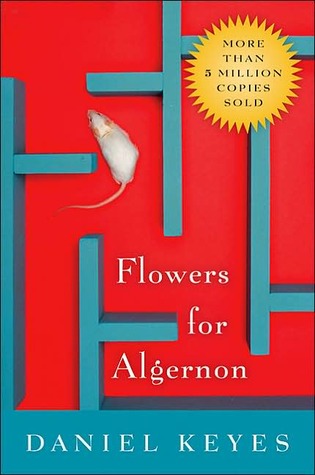 Flowers for Algernon – Daniel Keyes
Flowers for Algernon – Daniel Keyes
Flowers for Algernon is another deemed classic of science fiction writing. Perhaps I had read too much hype about it before actually reading it, but it didn’t live up to expectations. Incredibly well written and executed. The unique story telling style would be difficult to pull off but Keyes manages it. An unarguably interesting story.
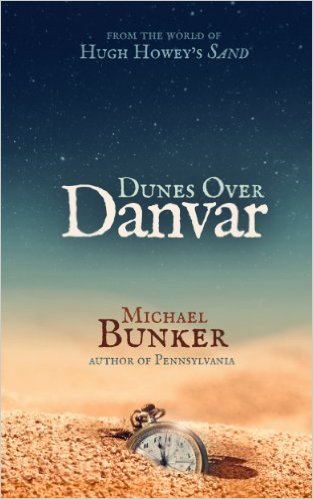 Dunes Over Danvar – Michael Bunker
Dunes Over Danvar – Michael Bunker
Bunker is an indie author with a growing number of good stories. I’ll be keeping my eye on his future work. Dunes Over Danvar is set in Howey’s Sand universe (I believe Howey is working on a sequel!). It’s an enjoyable adventure story set during the same time period as the events of Sand, but with unique characters. This story caused me to pick up another of Bunker’s stories, Pennsylvania.
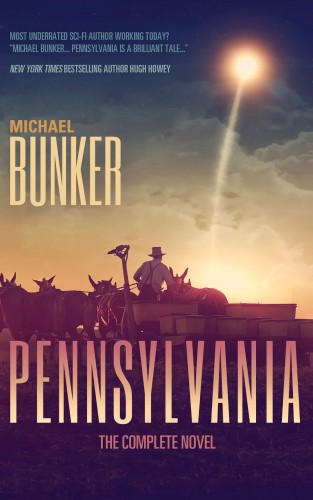 Pennsylvania – Michael Bunker
Pennsylvania – Michael Bunker
Pennsylvania certainly presents a unique universe. The only way to categorize it is “Amish Sci-Fi.” I know, how could such a category exist? Well, you can read this and find out. Bunker wrote the story in several pieces, but you can buy an omnibus at this point. While the universe has some compelling features and story line was enjoyable, I felt like Bunker didn’t really know where he was going with it overall. It feels a bit strung along. And the ending does not really wrap anything up. Presumably he’s working on a sequel. But even so, unless he has a master plan that he’s working towards I think it will continue to feel strung along and lacking depth. It really begins to feel like back story, details, and explanation aren’t being provided not because they need to be for the story to unfold a certain way, but because he can’t decide what they should be and doesn’t want to start fixing elements in place.